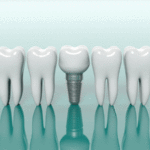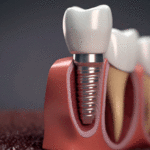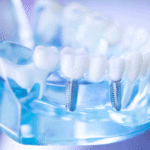 For being one of the most popular candies in the world, people seem to have a lot of questions about gum. You may have wondered, will chewing gum clean your mouth, and is it really bad for your teeth? Dentists have been fielding such queries for generations, yet some confusion and misinformation still exist. Here are just a few facts about gum chewing that dentists think you should know.
For being one of the most popular candies in the world, people seem to have a lot of questions about gum. You may have wondered, will chewing gum clean your mouth, and is it really bad for your teeth? Dentists have been fielding such queries for generations, yet some confusion and misinformation still exist. Here are just a few facts about gum chewing that dentists think you should know.
A lot of patients have questions concerning oral hygiene and their own dentition in particular. At Smile Design Dental, we want all of our clients to feel comfortable discussing any of their issues. Our offices are conveniently located in Coral Springs, Ft. Lauderdale, Hallandale Beach, Margate, and Plantation, FL. Contact any one of these Broward County locations to schedule a consultation about your concerns today!
A Brief History of Gum
People have been chewing gum for millennia, and for a variety of reasons. Ancient Greeks, Mayans, and Native Americans all chewed tree resin, and teeth marks have been found in the material at archeological sites dating from over 5,000 years ago. As early as 1848 American settlers were selling spruce tree resin as chewing gum at a penny apiece.
This first recipe mixed the pitch with paraffin wax and flavoring, but other formulas were on the way. Some inventors integrated ingredients such as rubber and charcoal into the mix. It wasn’t until using the sap from the sapodilla tree, called chicle, that gum began to take its modern form.
Today the product is made of a few basic ingredients. The first, known simply as “gum,” is the substance that makes it chewy. While many manufacturers keep a close secret as to the recipe, it almost always contains some ratio of natural or artificial resin, elastomer, and wax. Sweeteners and other additives adjust flavor, texture, and overall elasticity. Gums that use artificial sweeteners have an edge since their ingredient doesn’t contribute to the forming of tooth decay.
Does Chewing Gum Clean Your Mouth?
Since gum wasn’t made as an oral hygiene product, its primary purpose isn’t to scrub teeth and gums. Even so, there are unintended benefits to chewing gum that go beyond taking pleasure in the action itself. In fact, chewing gum is one of the few candies actually found to help dental care. There are a few ways specifically that chewing the right kind of gum is good for your teeth.
- Increased Saliva Production: Saliva is your mouth’s first line of defense against tooth decay. Chewing sugar-free gum tricks your body into thinking you’re sitting down to a big meal, stimulating saliva glands to get to work. This helps to wash food particles off your teeth and into your digestive tract, and the enzymes found in saliva break down harmful bacteria.
- Immune System Support: Studies have shown that the act of chewing may actually boost your immune system. The presence of bacteria alone isn’t a trigger for your mouth to produce Th17 cells, immune cells that help fight off a number of oral infections. By chewing gum, patients can stimulate Th17 production to help fight tooth decay as well as other illnesses. It is possible to have too much of a good thing because those cells have also been associated with periodontitis, but only in extreme cases.
- Enamel Protection: Some gum brands contain casein proteins, special milk-based proteins that help keep enamel intact. They create a coating on teeth that help to keep bacteria and other particles away from the surface of your dentition.
- Slow Down Decay: Another ingredient found in some gums actively works against tooth decay. Such compounds help to neutralize the decay process and slow it down.
Unintended benefits aside, it’s important to remember that chewing gum is not a replacement for other forms of oral hygiene. Your first line of defense against cavities is still a daily regimen of brushing, flossing, and using fluoride along with biannual trips to your dentist.
Does Chewing Gum Fight Germs?
When you chew gum, it activates saliva glands and helps destroy bacteria. In that way, gum does help to fight off cavity-causing germs, but that isn’t the only weapon in that chewy confection’s arsenal. In fact, the main property that makes the substance gum is what gives it excellent bacteria-fighting power.
Anyone who’s looked under a high school desk knows that gum is sticky. That’s great news for your mouth since its adhesiveness forces food particles and the bacteria that cause bad breath to become trapped. For at least the first half-minute, chewing gum can capture upwards of 100 million bacteria!
Since we generally spit out gum when we’re finished, those halitosis-inducing hitchhikers go into the trash right along with it. With the bacteria gone and the added mint or cinnamon flavor helping to soothe the senses, your mouth will feel and smell great. As such, chewing gum is a much better alternative than shoving a mint in your mouth after a meal.
Can Gum Whiten Teeth?
Many people dream of having a brighter smile, and gum manufacturers have attempted to rise to the challenge. Dentists support chewing sugar-free gums because they help fight cavities, so it makes sense to have it pull double duty as a tooth whitener. While it makes sense on paper, the reality is much less exciting.
In order to help brighten teeth, “whitening” gums use polishers as one of their ingredients. Two common additives are titanium dioxide and baking soda which gently scrub the teeth as you chew. The polishing may remove some surface stains, but you shouldn’t expect a low-impact activity to have a dramatic effect. They can do little to affect the natural color of teeth, and the length of time gum rubs against your teeth is most likely less than whitening toothpaste some patients use and get similar (if not better) results.
While it can help to remove slight discolorations, whitening gum just doesn’t have the power to do a decent job of whitening teeth. If a shinier smile is your goal, talk to your doctor about more effective treatment options.
Which Gum is Best for Oral Health?
Not every gum is created equal. Sugar-free options are best as they aren’t filled with the literal fuel needed to cause tooth decay. Bacteria transform sugars into acid which eats away at enamel and causes cavities. Since it’s the acid that actually erodes teeth, even sugarless gums with fruit flavors are likely to contribute to poor dental hygiene.
There are some brands and types of gum that are head-and-shoulders above the rest. Some include ingredients such as xylitol that is suggested to reduce instances of tooth decay on its own. Some brands to look into include:
- Glee Gum
- Orbit
- Peppersmith
- Pür
- Xylitol
- XyloBurst
When choosing gum, look for options that are sugar-free and contain ingredients that will help your dentition instead of contributing to tooth decay. Chewing these types will not only help your teeth but keep your breath fresh too.
What are Other Options than Chewing Gum?
While dentists may love that sugarless gum helps fight cavities and cleans teeth, some patients look down on the candy because of its disposability. Chewing gum litter is second only to cigarette butts, to such an extent that Singapore outlawed the substance just to keep streets clean. Some gums use synthetic resins produced from crude oil, and they will never biodegrade.
There are some healthy alternatives to chewing gum for those who need to get their miny mastication fix out of the way. Organic gums use only natural products and are much more eco-friendly. Get bad tastes out of your mouth with water spiked with lemon or lime slices. For fresh breath, try fresh mint leaves or cloves, and if you decide to use mints as an after-dinner refresher make sure they’re sugarless!
 Do Dentists Recommend Chewing Gum?
Do Dentists Recommend Chewing Gum?
Candy has been the bane of dentists around the world for generations, but sugar-free gum is one thing that makes them turn their heads. Because it can actually help clean teeth, fight decay, and eliminate bacteria there’s so much for your doctor to love! The American Dental Association has even given sugarless gum the official seal of approval, identifying it as a positive tool for those looking to maintain excellent oral hygiene. Gums that contain sugar can’t attain such a high honor.
While there are a wealth of benefits, gum is no substitute for standard care. Dentists still suggest brushing twice a day with toothpaste containing fluoride and flossing nightly. Even so, as a supplement to regular brushing and flossing, patients who chew gum are doing a lot for their oral health.
If you’re one of the patients who still ask will chewing gum clean your mouth, don’t hesitate to call Smile Design Dental. Our experienced clinicians are waiting to help you make the best decisions for your oral health. Schedule an appointment to speak with a dentist today to keep your smile looking as great as ever!




